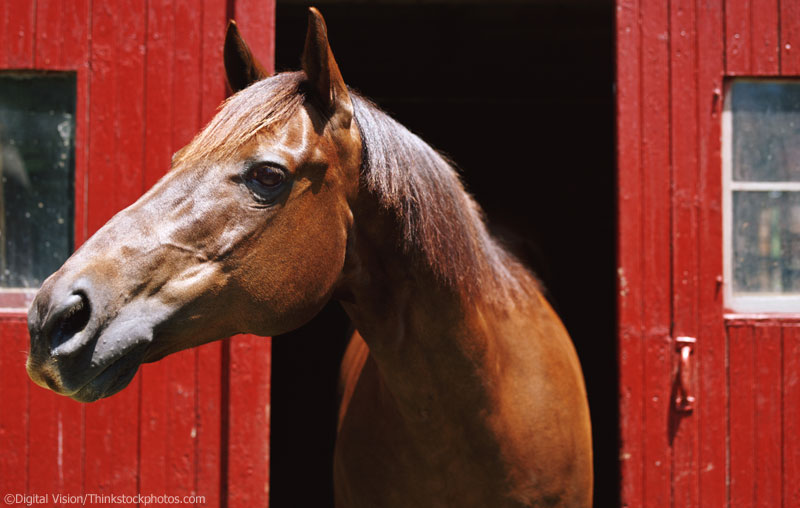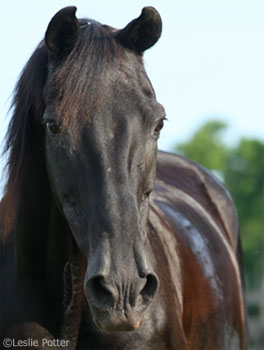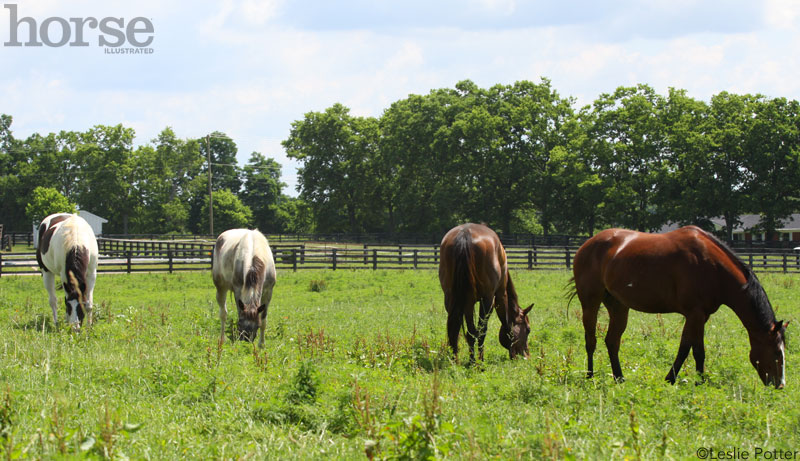
Finding the best boarding barn for your four-legged family can be stressful. Not only do you have to find a farm where your horse’s needs are met, you need to find a place where you feel comfortable, as well.
Having a general idea of what you desire in a barn, with regards to both the physical facilities and management style, is a good way to start.
Riding in Style
Do you have a specific discipline? Would you like to ride with others who ride in the same style? If so, finding a barn that caters to mainly riders of the same ilk would be advised. If you are a trail rider who likes to ride with friends, but your horse is kept with mainly show horses, it may be difficult to find other people to ride outside of the ring with you on a regular basis.
Type of Board
Many boarding barns offer a few different levels of care. They could include:
- Self care, where you do all of the feeding, blanketing and maintenance of your horse yourself. This would also include cleaning the stall and turning in and out, should a stall be available to you.
- Partial care, where your horse is cared for during either the morning or evening hours by barn staff, and you as the owner are responsible for the other half of the day. In most cases, this would include the feeding of one meal by barn staff and then turning out or bringing in. Most partial care boarders are responsible for their own stall cleaning, blanketing and other care.
- Full care, where you are not responsible for any of the day-to-day maintenance of your horse. Full care typically includes stall cleaning, turnout and feeding. In some barns, it might also include blanket changing, applying fly spray and masks, and holding for the vet or farrier.
Your lifestyle (work schedule, family obligations, frequent travel, etc.) and financial situation tend dictate the level of care you’ll need for your horse.
Management Style
There are many different factors that come into play with regards to barn owners and the way they operate the facility. Some of the questions you will want to consider include:
Does someone live on the property to keep an eye on the horses or are the horses alone overnight and on holidays?
Does the facility have set hours of operation? This will particularly affect you if you work an unusual shift and can only get to the barn during non-traditional hours.
Are you allowed to feed the feed of your choice or are you required to have your horse on feed the entire barn uses? If your horse is on supplements, will those be fed?
What about the vet and farrier? Can you bring your own horse health team in, or must you use the vet and farrier of the barn owner’s choosing?
Amenities
Depending on your area of the country and your riding goals, certain amenities may be non-negotiable, such as a lighted ring for after-work rides in the winter, or an indoor if you get truly inclement weather.
Be aware that amenities such as these, even if standard in your area, will add additional cost to the board as owners must upkeep additional buildings.
Finding the right boarding barn might take time and diligence to locate, but the peace of mind that comes from knowing your horse is well cared for is worth its weight in gold. Finding a few great new barn buddies is just icing on the cake!
Liked this article? Here are others you’ll love:
10 Ways to Be a Better Boarder
Find Ideal Living Arrangements for Your Horse





Great advice.
I am thankful I can keep my horses at home, and not have to worry about boarding.
I wouldn’t consider getting a dog if I knew I had to keep him in a kennel. The same goes for my horses. I’ve had horses my whole life and, yes, there have been brief instances where boarding was required but I believe, to have and maintain a connection, horses should be at home.